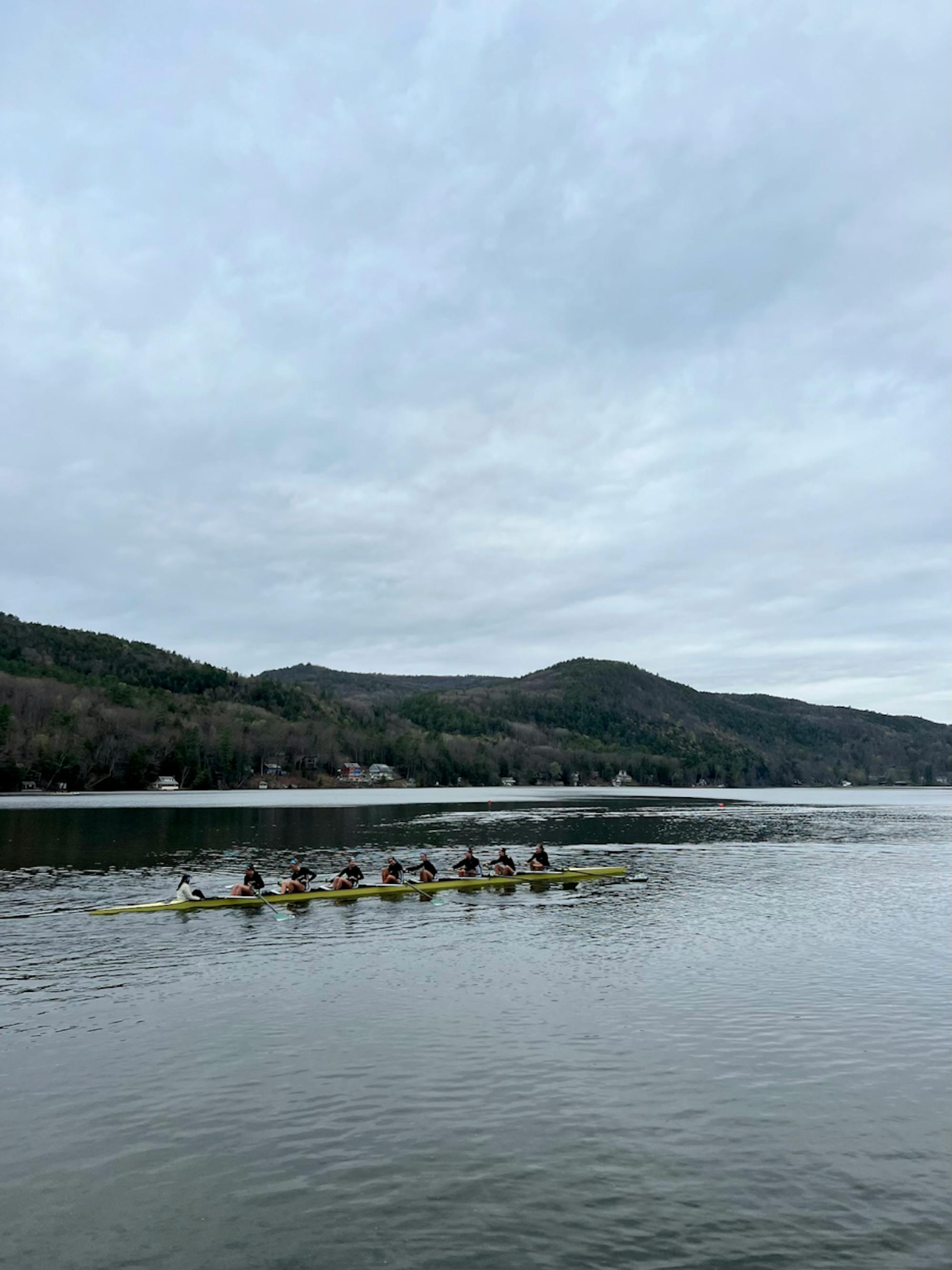For many second-years at Dartmouth, sophomore summer provides a time to bond as a class, commit to new activities for a term and enjoy momentary freedom from the normal demands of extracurriculars. Student-athletes are no exception.
According to Dartmouth Sports, varsity teams at the College compete “year-round”, and sports can be in-season for one to three terms. At first glance, this may seem like summer is a default off-season. However, student-athletes are still expected to engage in their sport and train — albeit to a lesser extent than other terms — with the new, added benefit of schedule flexibility.
The summer term, together with a low pressure environment and the absence of back-to-back competitions, allows for a fresh motivation and love for student-athletes’ respective sports, according to women’s track and field team member Payton Weiner ’25.
“Sophomore summer is a time for us to fall back in love with the sport,” Weiner said. “It’s too far away from the actual season to even be thinking about races and competitions, so it’s a great way to do the sport for the same reasons that got us into the sport in the first place and not necessarily for a certain result.”
Because summer is a term with less commitments for Weiner, she explains that practice is more “doable” as she has more time for her runs.
“I do have to hit a certain mileage for the week,” Weiner said. “It’s definitely much more flexible. I’m running during my lunch break or after work, and I’m just coordinating with my teammates who are on the same schedule.”
Heavyweight rower Munroe Robinson ’25 described going from twice daily practice to one in the afternoon. He said he uses the free time to do extra training, spend time with friends, get ahead on schoolwork and do “whatever I want to do.”
“It’s just nice to have the freedom to choose,” Robinson added.
Extra free time might also be attributed to not taking classes, as is the case with some student-athletes that choose to take an off-term in Hanover, including Weiner.
Weiner explained that for sports such as her own that compete during fall, winter and spring, taking an off-term during one of those three terms would mean she could not compete for that season. Therefore, most three-season athletes take the summer term off.
Men’s tennis is another three-season sport, and Alex Knox-Jones ’25 said that not all of his fellow sophomore teammates chose to take their off-terms near campus: His two ’25 teammates chose to stay at their respective homes, whereas Knox-Jones is currently conducting research with a professor because he did not want to miss out on sophomore summer.
Student athletes with other teammates on campus take advantage of the flexibility in their training regimen to engage in team bonding activities. Morgan Kendall ’25 of the women’s rowing team said she agreed to train heavily this summer with her teammates, rowing thrice a week in the mornings and cross training or lifting during the afternoons.
“We decided to make [conditioning] more fun by playing and trying other sports… as opposed to doing a very structured, intense workout,” Kendall said. “I genuinely love spending time with, and exercising with, the girls on my team.”
Kendall added that having other ’25s currently on campus lightens up her workout regimen, as both her teammates and best friends are enjoying the newfound flexibility and fun of sophomore summer.
“It's just way more fun and way more productive to go work out with a big group than it is to do it by yourself,” Kendall said.
Weiner said that the warmer weather opens up the opportunity to discover new trails around the Upper Valley. She explained that running amongst nature with her teammates allows her to forget about mileage and pace. The self-motivation stemming from the ability to design her own schedule and setting has refreshed her “passion” for running, she said.
Knox-Jones emphasized the importance of sophomore summer “reigniting” his love for tennis, noting that without mandatory practices, he is playing on his own accord, which is more “motivating,” according to Knox-Jones.
“During a normal term, regardless of if you’ve had an awful day or if you’re exhausted, you still have to go [to practice],” Knox-Jones said. “During the summer, though, it’s just my own accord whether I want to come in or not, and so every time I’m at the tennis center, or every time I’m in the gym now, it’s because I want to be there. I want to play and get better.”
In the summer, Kendall said she sees practice as a more “social space,” as she interacts with her teammates more in the relaxed summer practice environment.
“Being here in the summer and being able to be with and workout with my friends, my mental health has skyrocketed, especially with the nice weather,” Kendall said. “I definitely think this is the term to have fun together and make our workouts really exciting and our own.”




